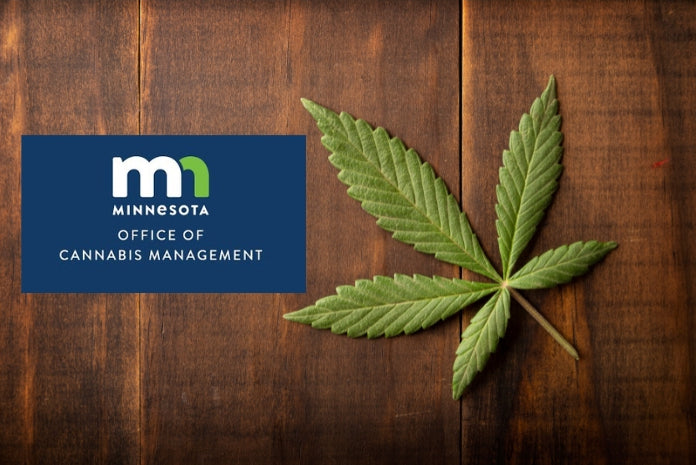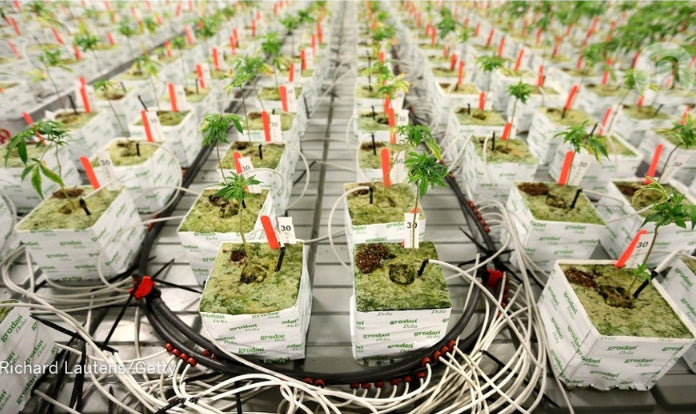The regulatory agency is starting to revoke hemp licenses for farmers attempting to simultaneously grow marijuana under state-approved hemp programs.

There are many unique and complicated challenges facing farmers who choose to cultivate the cannabis sativa plant. It is still an almost comical undertaking trying to explain the difference between hemp and cannabis to the average person. Of course, the 2018 Farm Bill, which legalized hemp cultivation and production for the first time in almost a century, classifies hemp as any part of the cannabis sativa plant containing less than 0.3% Delta-9 THC.
However, no matter the technical classification, hemp and cannabis are interconnected parts of the same plant. Whether a farmer has a hemp or cannabis growing license, they still nurture both distinctive plants during growth. So, for many growers, having the legal and regulated ability to grow both for sale is ideal.
The dual cultivation capacity may be logical and efficient from the farmer’s perspective. However, according to multiple media outlets, the U.S. Department of Agriculture has recently begun reminding farmers that cannabis is still illegal under federal law. Furthermore, the regulatory body is now revoking hemp licenses from growers attempting to “have their hemp and cannabis too.”
Following the passage of the 2018 Farm Bill, many states began establishing guidelines and regulations to enable farmers to enter the newly legal market sector, while others went with the USDA generic plan. Now, growers working under the federal program are coming forward, saying they have been threatened with losing their hemp licenses if they attempt to pursue growing marijuana as well as hemp.
One of those farmers, Sam Bellavance from Vermont, said in an interview with Seven Days that, a few months after he started cultivating marijuana under his state’s program, he got an email from the USDA explaining that “regulations don’t allow for a hemp-licensee to also be producing marijuana, even if licensed to do so by a state program.”
With almost half the states now running legal and regulated recreational cannabis markets for adults over 21 and nearly 40 with some form of medicinal marijuana program, it is a massively confusing time to be a hemp/cannabis farmer or government regulator.
James Pepper, chair of the Vermont Cannabis Control Board (CCB), says it’s not just hemp farmers perplexed by the policy.
“I think there’s confusion at the USDA about if this is possible or not,” he said.
"I think there’s confusion at the USDA about if this is possible or not.”
- James Pepper, chair of the Vermont Cannabis Control Board (CCB)
And, while the USDA concedes that the state-federal marijuana policy conundrum has produced a “complex” regulatory environment, a spokesperson for the department explained in an interview on Monday that the federal rules barring marijuana cultivation are “very clear.”
“Since the Farm Bill was passed in 2018, and since our regulations were promulgated, state and tribal laws about both hemp production and marijuana production and possession have evolved rapidly. This creates a complex jurisdictional and regulatory landscape that is unique to these emerging industries,” the spokesperson said.
"Since the Farm Bill was passed in 2018, and since our regulations were promulgated, state and tribal laws about both hemp production and marijuana production and possession have evolved rapidly. This creates a complex jurisdictional and regulatory landscape that is unique to these emerging industries.”
- USDA Spokesperson
The farmers most at risk of losing their hemp licenses appear to be those exclusively operating under the USDA’s generic program. Along with Sam Bellavance in Vermont, farmers in Missouri and Mississippi also face the specter of having their licenses revoked if they attempt to pursue growing both hemp and cannabis.
Growers like Chris Beerman, a farmer based in Missouri, and Eric Sorenson, from Mississippi, both received communications from USDA officials warning them to cease their simultaneous cultivation of hemp and marijuana or face the consequences of losing their hemp growing licenses.
According to Politico, an agency representative told Sorenson, “While Medical Cannabis is not federally legal, we will not be able to allow you to maintain your current hemp license in addition to the medical cannabis cultivator license.”
Advocates and stakeholders from within the hemp industry view the USDA’s approach to the issue as short-sighted and reactionary. Jonathan Miller, general counsel to the U.S. Hemp Roundtable, describes the situation as “not only very unfortunate but also counterintuitive.”
He said, “The expertise gained by growing one plant is very transferable to the other—they basically are the same species—and having a black-and-white bar like this is bad public policy. I would hope that USDA would revisit this, and if they believe their hands are tied by statute, then (it) is something we should fix in the Farm Bill.”
"The expertise gained by growing one plant is very transferable to the other—they basically are the same species—and having a black-and-white bar like this is bad public policy. I would hope that USDA would revisit this, and if they believe their hands are tied by statute, then (it) is something we should fix in the Farm Bill.”
- Jonathan Miller, general counsel to the U.S. Hemp Roundtable
Moving forward, Congress may have to intervene and legislate whether or not farmers can legally grow both hemp and cannabis. With the Farm Bill receiving an extension into 2024 until lawmakers can agree on a revised and updated version of the five-year spending program, farmers like Bellavance, Beerman, and Sorenson will have to navigate the tenuous limbo state currently shackling the hemp industry until a new bill is approved.






































